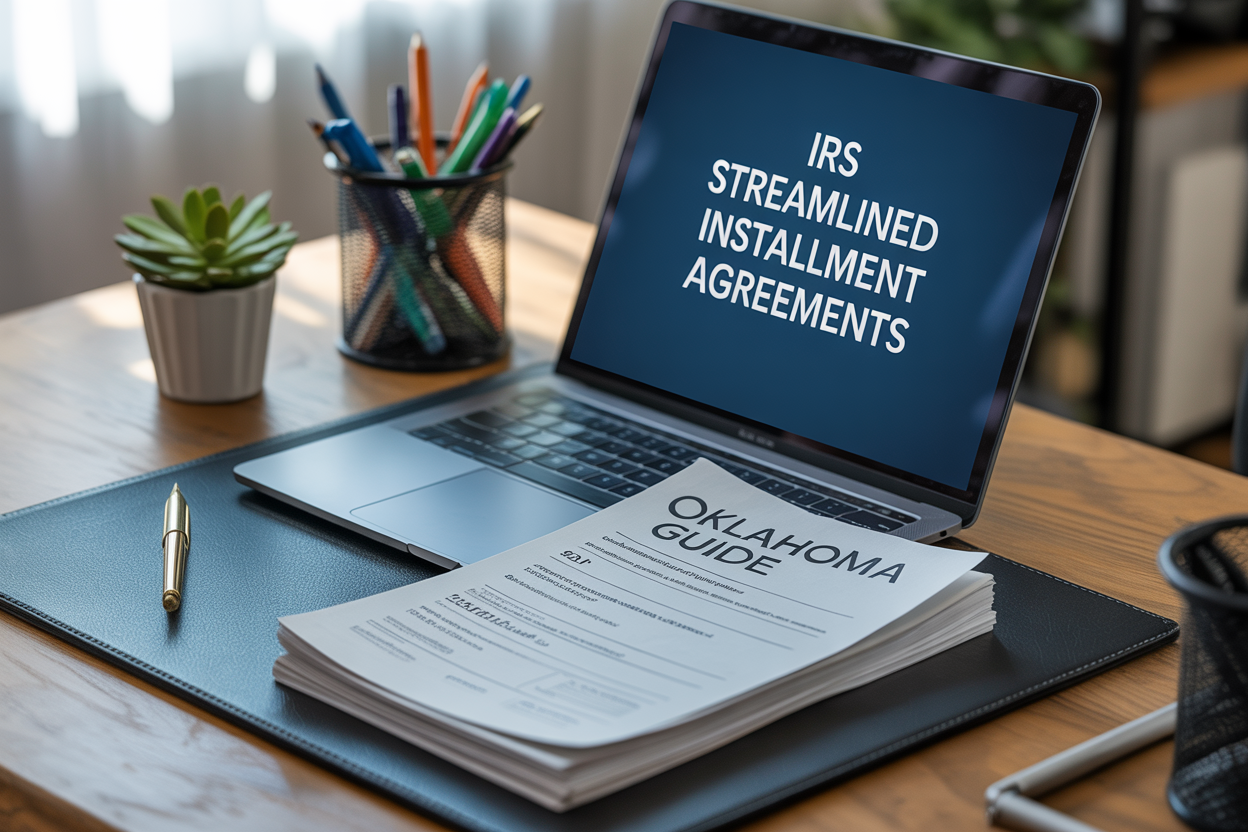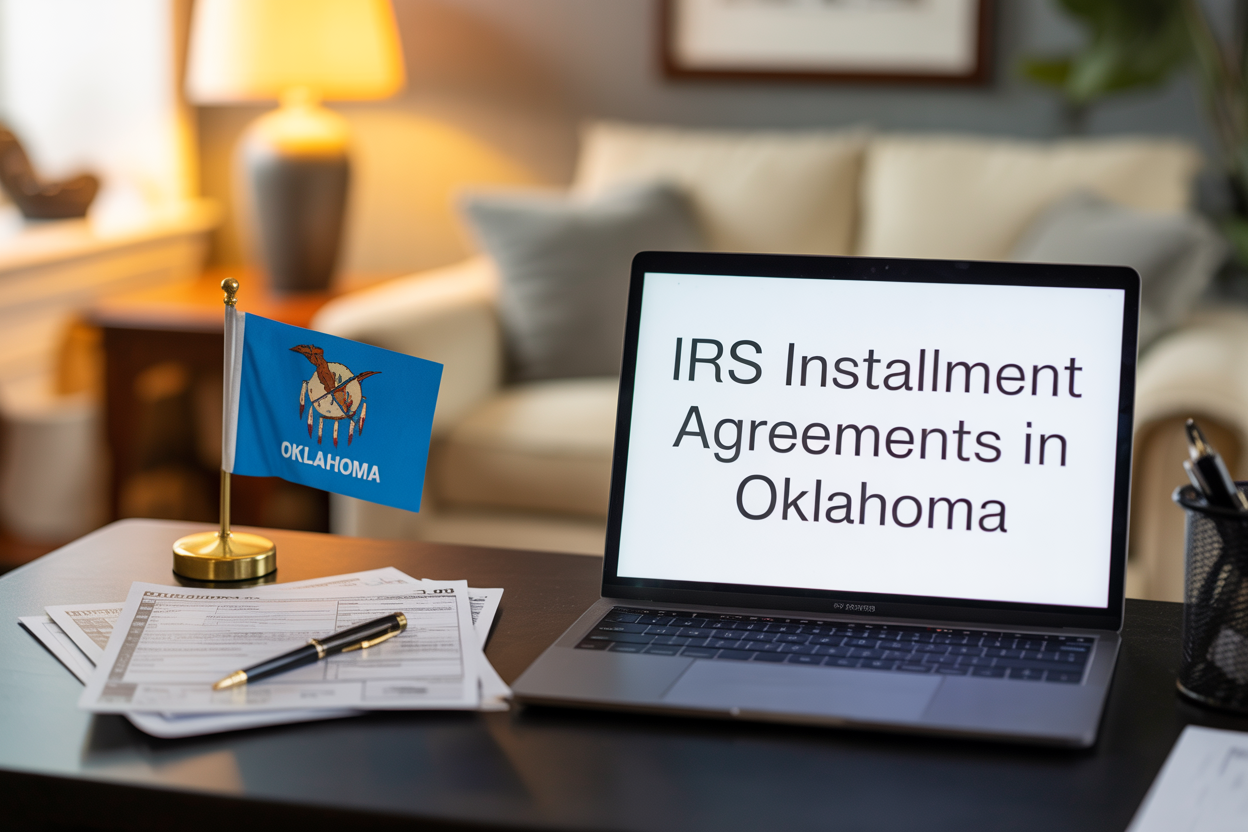IRS Offer in Compromise for Self-Employed Taxpayers in Oklahoma

If you're self-employed in Oklahoma and owe back taxes, you're not alone — and you're not out of options.
Many self-employed business owners and independent contractors assume they won’t qualify for an IRS Offer in Compromise (OIC) because they still have income. But that’s not true.
At Boulanger CPA and Consulting PC, we help self-employed Oklahomans settle large tax debts through OICs when their income is modest and their expenses are legitimate.
Here’s how the IRS views self-employment in OIC cases — and what you can do to qualify.
Can You Qualify for an Offer in Compromise If You're Self-Employed?
Yes — if you meet the same baseline criteria as any other taxpayer:
- You’ve filed all required returns
- You’re not in active bankruptcy
- You can demonstrate that full payment would cause financial hardship
The difference for self-employed taxpayers is that the IRS scrutinizes your financial disclosures more closely.
What the IRS Looks For in Self-Employed OICs
When you're self-employed, the IRS will review:
- Gross income from business or 1099s
- Business expenses (Schedule C or corporate P&L)
- Monthly cash flow
- Bank statements
- Personal living expenses
They’ll compare your income against national and local IRS standards for allowable living expenses in Oklahoma.
Learn more about how the IRS calculates your Offer in Compromise here.
Tip: Make Sure Your Business Expenses Are Legitimate and Documented
The IRS allows ordinary and necessary business expenses when calculating income. But they’ll want documentation:
- Software, subscriptions, and tools
- Rent or home office
- Mileage or vehicle use
- Subcontractor or assistant costs
- Insurance
Expenses that reduce net income (and therefore lower your OIC offer) must be:
- Reasonable
- Recurring
- Documented
Need help preparing a clean, accurate P&L for your OIC? We do that in-house for all our Oklahoma clients.
Why Self-Employed People May Qualify More Often Than They Think
Unlike W-2 employees, self-employed people:
- Can deduct real expenses that reduce their offer amount
- Often have inconsistent or seasonal income
- May show low net income even if gross revenue is decent
We help you take advantage of this by:
- Timing your OIC when income is down
- Backing up deductions with receipts and reports
- Using IRS standards for allowable costs
Use our free Offer in Compromise Calculator to get a rough estimate.
Oklahoma Case Example
Client: Freelance photographer in Edmond, OK
- Owed $41,000 in back taxes from 2017–2021
- Filed all returns but hadn’t made any payments
- Averaged $2,400/month after expenses
- IRS initially rejected her OIC due to inconsistencies
- We cleaned up her P&L, matched it to bank deposits, and refiled
- IRS accepted a $2,250 settlement offer
How to Strengthen Your OIC as a Self-Employed Taxpayer
Submit a Clean, CPA-Verified P&L
Don’t rely on QuickBooks alone. The IRS wants a clear view of monthly income and business expenses.
Match P&L to Bank Deposits
Inconsistencies between what you report and what the IRS sees in your bank account can kill your offer.
Avoid Fluff Expenses
Keep personal expenses out of your business totals. The IRS will throw them out and increase your income on paper.
Use Current-Year Income
The IRS allows you to use current-year data (not 2-year averages) if you’re self-employed. This helps if income is down now.
Work With a CPA Who Understands the Process
We know what the IRS Offer Examiner wants to see. We build your offer to match it.
Already filed and got rejected? Learn how to appeal a rejected Offer in Compromise.
Final Thoughts
Self-employed people can qualify for IRS debt settlement if their net income is low and their business records are clean.
We help Oklahoma taxpayers submit strong, well-documented Offers in Compromise — especially for freelancers, 1099 earners, and small business owners.
Start now with our Offer in Compromise Calculator, or schedule a strategy session to review your case.
Call (405) 384-4900
🧠 FAQ – Offer in Compromise for Self-Employed
Can self-employed people qualify for an Offer in Compromise?
Yes. As long as you meet IRS financial hardship criteria and your net income is low, self-employed taxpayers can settle IRS debt through an OIC.
What kind of records do I need to submit?
You’ll need a clean profit and loss (P&L) statement, bank records, and supporting documentation for expenses. The more accurate and consistent, the better.
Will the IRS accept my business deductions?
Yes, if they’re ordinary, necessary, and documented. We help ensure your deductions are fully supported and legitimate in the eyes of the IRS.
What happens if the IRS rejects my self-employed OIC?
You can appeal the decision, revise your offer, or pursue a payment plan or hardship status. We can guide you on the best next step.
✍️ About the Author
Marc Boulanger, CPA, is the founder of Boulanger CPA and Consulting PC, a CPA firm based in Oklahoma City, OK.
Marc is the author of Oklahoma Taxpayers' Guide: Taking a Stand Against the IRS and has resolved hundreds of complex federal and state tax cases.
With over a decade of experience in IRS and OTC representation, Marc helps Oklahomans navigate high-stakes tax problems with clear strategy and calm expertise.
He is a Certified Tax Representation Consultant and a member of the American Society of Tax Problem Solvers (ASTPS).
📍 Office: Oklahoma City, OK | 📞 (405) 384-4900 | 🌐 www.oklahomacity.cpa










